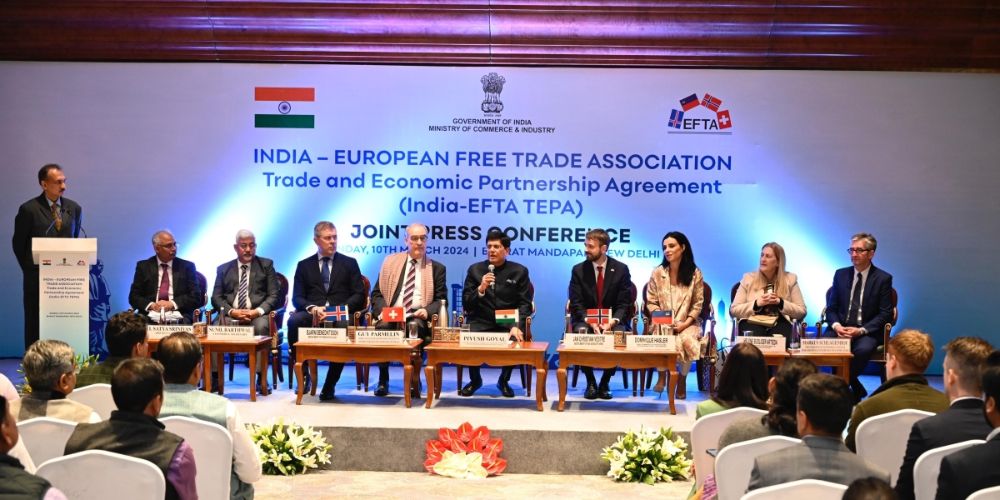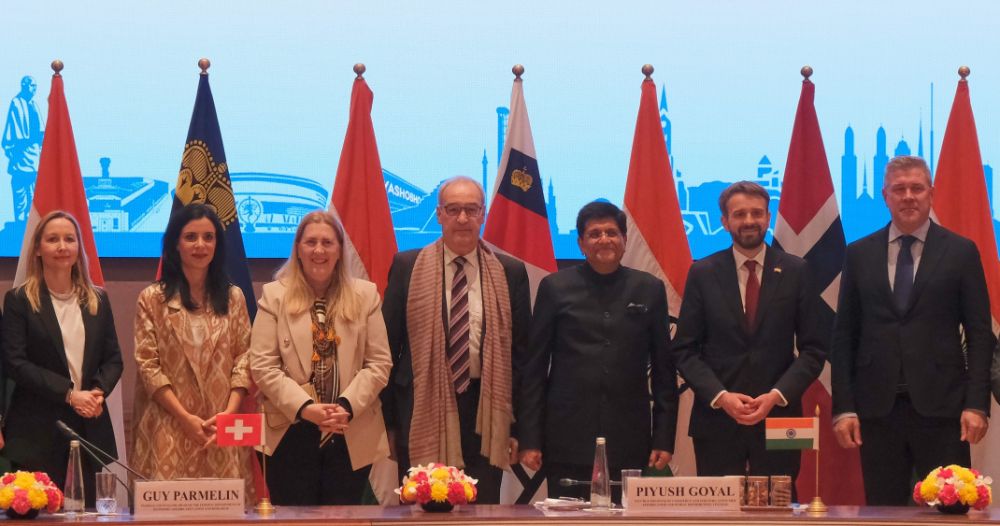India and the European Free Trade Association (EFTA), representing four European nations, have finalized a landmark free trade agreement designed to enhance investments and bolster exports in key domestic service sectors. This significant development was announced on Sunday, following intensive negotiations between the parties.

India’s Prime Minister Narendra Modi congratulated the negotiators and signatories involved in the signing of the India-EFTA Trade and Economic Participation Agreement (TEPA), hailing it as an innovative and well-balanced trade deal that reflects the developmental aspirations of both sides.
“The culmination of efforts to finalise an innovative, well-balanced trade deal that reflects our respective developmental aspirations is commendable. One of the most pioneering free trade agreements ever concluded between our countries, TEPA emphasises our steadfast commitment to shared prosperity and our drive to cultivate a stronger, more inclusive partnership between India and EFTA, furthering the aspirations of our people,” said the PM.
In his remarks, Prime Minister Modi highlighted the potential for mutual benefit, citing complementarities between the Indian and EFTA economies that promise a win-win situation for all nations involved. He also emphasized the significance of the agreement in generating growth and employment opportunities, particularly for the youth, while noting the transformative changes in India’s economy over the past decade and expressing ambition for further growth.
Prime Minister Modi praised the global leadership of EFTA countries in innovation and research across various sectors, anticipating new avenues for collaboration. The EFTA nations – Iceland, Liechtenstein, Norway, and Switzerland – have extended duty-free access to India’s animal products, fish, processed food, and vegetable oils, and proposed a substantial $100 billion investment in India over 15 years, with the potential to create approximately one million jobs.

The signing of the agreement was the culmination of negotiations that commenced back in 2008, with Mint initially disclosing on Thursday that the Cabinet would consider approval for the agreement. The terms outlined at Bharat Mandapam ensure immediate duty-free access, presenting favorable terms compared to other free trade agreement partners. Additionally, EFTA intends to establish offices in India to facilitate its companies’ operations.
Despite these positive developments, trade experts remain cautious about the deal’s potential benefits, particularly concerning India’s agricultural exports to Switzerland. “India’s agricultural exports are minimal and unlikely to increase significantly due to strict quality standards and non-tariff barriers,” said Ajay Srivastava, who heads trade think tank – Global Trade Research Initiative (GTRI).
